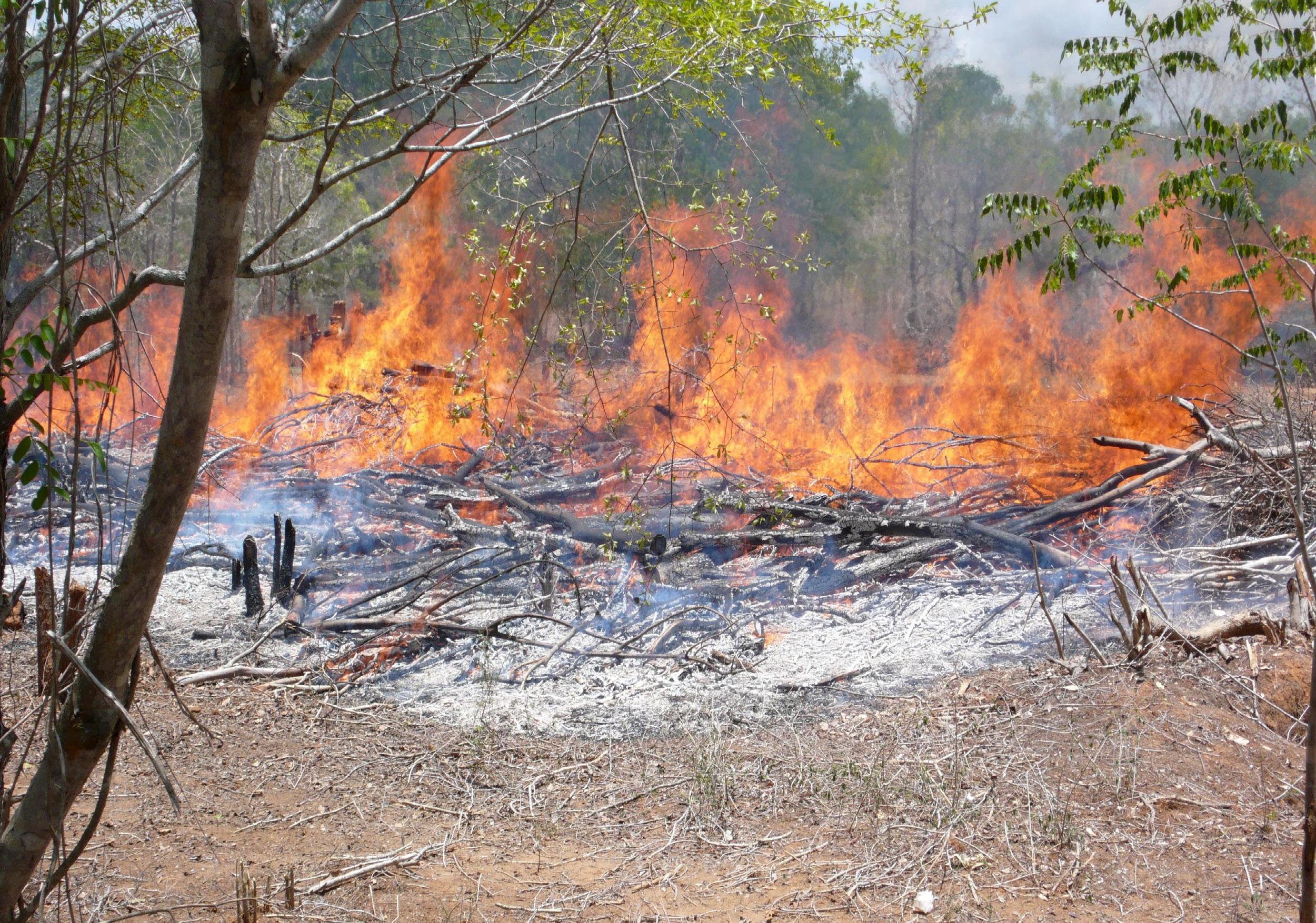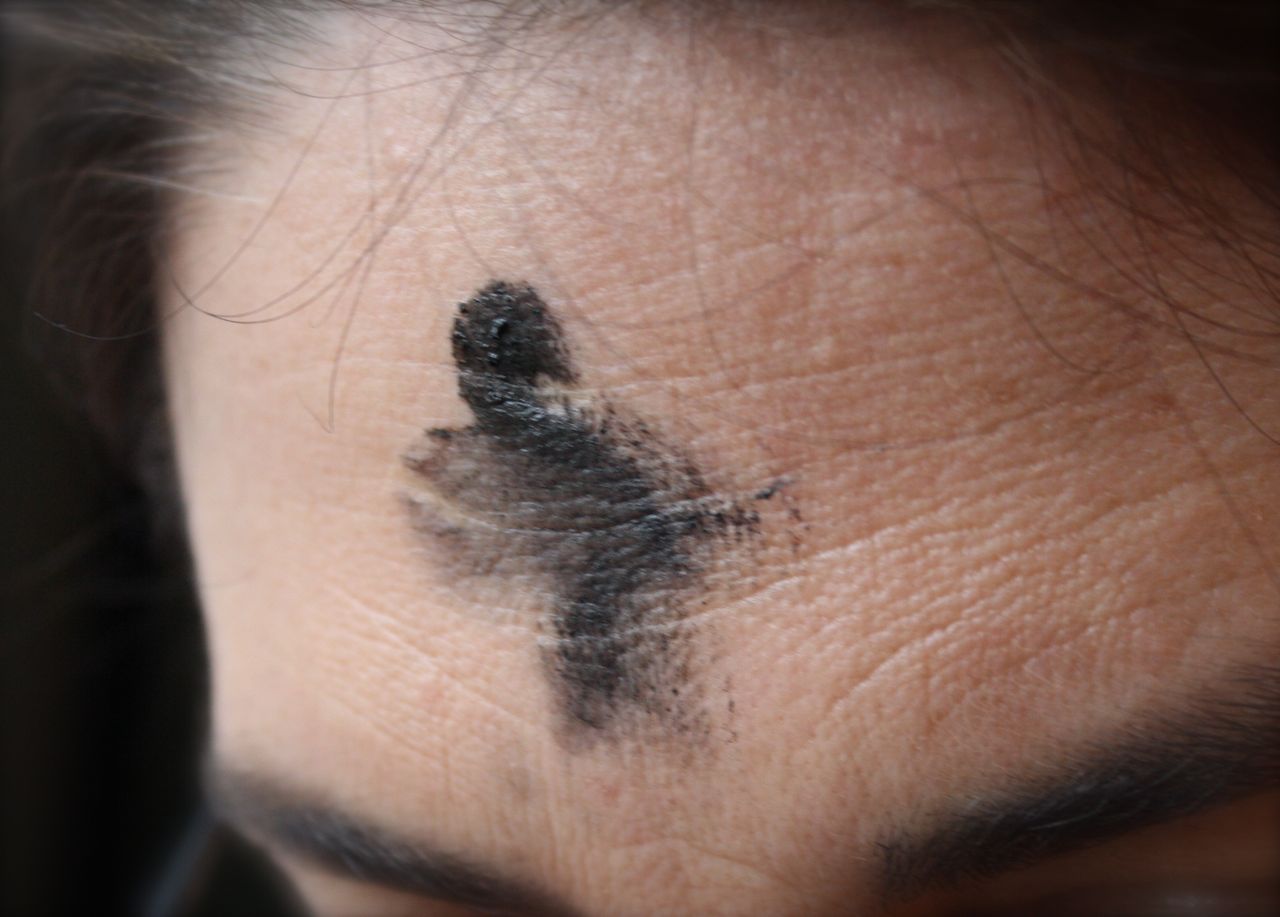This past Ash Wednesday, I was thinking about how weird it is that we get our foreheads smeared with calcium carbonate to begin a season of repentance and to give us hope for Easter. I won’t quote which songs we sang at the liturgy, but they were categorically unhelpful for giving insight into why we do what we do. I admit that I started to glaze over during the homily and I started thinking about a big pile of ashes. I remembered a video I saw in a college human geography class when we were learning about the manner in which many developing or 3rd world residents cultivate crops. They use the “slash and burn” technique. They slash a few acres of jungle or vegetation and then they burn everything they cut. The nutrients that had been stored within the trees are now released through the chemical change from wood to ash and they enter into the soil. When seeds are planted in the ashes, they have access to the nutrients in the ash and they can grow thereby providing food to the village.
I have never identified with people who say, “I have no regrets.” That must feel great because I very often feel the heavy burden of deep regret. I have hurt people. I have made bad decisions. I have been selfish, shortsighted, arrogant, untrustworthy, lazy, and deceitful. I’m a sinner and I regret every single moment when I have sinned. But even when I have not sinned in the strictest sense of the word, I have much I regret due to being impulsive and blithely going about my own interest. I’d like to be released from all of these regrets and have the damage done be restored.
Now the ashes begin to be hopeful.
I love the biblical image of the Holy Spirit as fire and the way that the Letter to the Hebrews describes God as an “all-consuming fire”. My beloved youth minister when I was a teenager, Mary Catherine George, used call Holy Week “the Week of Fire”. I think she has it right and I would extend it to all of Lent: 40 days of fire. As Christians, our hope is in the power of the Holy Spirit, the Love of God, to burn away everything that is not love within. For me, the regrets I have will not go away, but the Love of God, the fire of Love can transform them and they can become the fertile ground for holiness. Nutrients and richness are in the memories of the regrets. Maybe this is the rich soil that Jesus was talking about when the sower sows the Word of God. Maybe this is how someone goes from being rocky soil to fertile soil. Sin and regrets get burned by the love of God and we become receptive to God’s work in our lives. I’m thinking the ashes aren’t just going to be the way I begin Lent, but they are going to be the constant symbol this Lent and become my prayer. “God, by the fire of your love, burn away everything that is not love. And let those ashes become a place where holiness can grow.”
The smearing on my forehead symbolized the transformation of sin, regret, and mistakes. I wanted the person to smudge those ashes deep in my pores because Romans 8:28 says that all things will work for good for those who love the Lord and are called according to his purpose. If God can work the crucifixion into resurrection, he can take this dust and sow the seeds of temperance, chastity, charity, diligence, patience, kindness, and humility.
Then, the very things that burdened me will become the soil for holiness.




